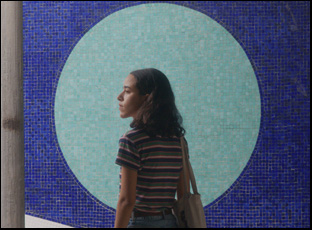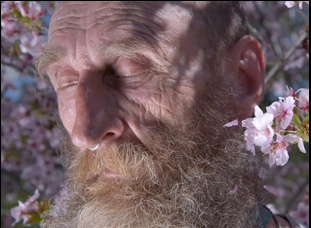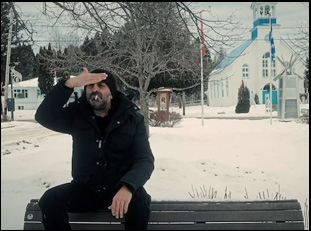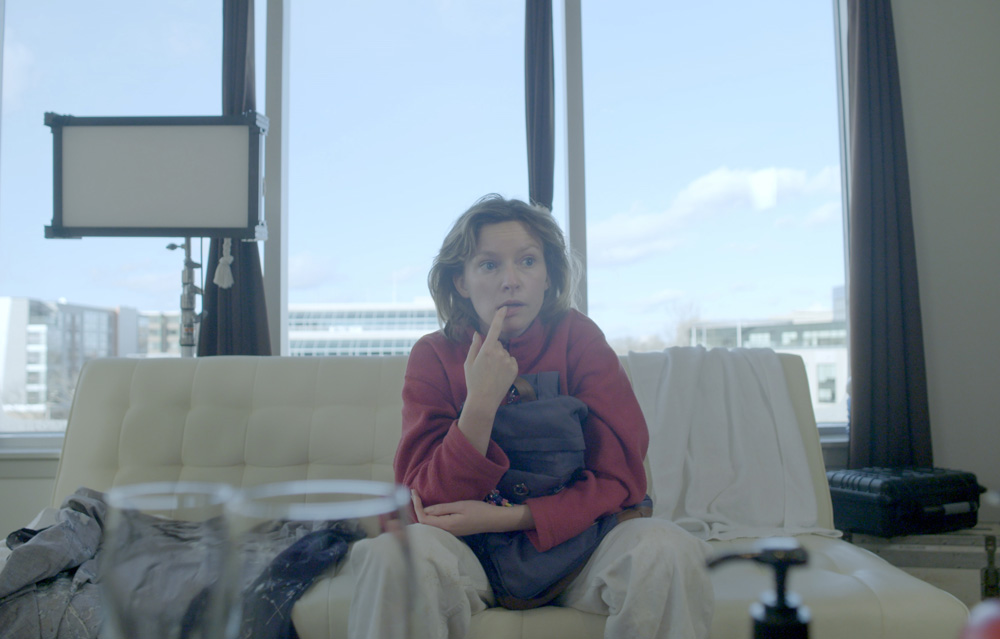When the first-ever Montreal Critics’ Week was being hatched, its founders thought about ways to change the conversation. As those perusing a program for the weeklong event beginning this week, it is bound to catch the eye that no one should expect a post-screening Q & A or discussion as so many other festivals promise with the air of pedestrian banter and some top-down hierarchy, but rather a “debate” after an evening of films that puts their directors on equal footing and ideally leads to dialogue filled with the passion that inspired them to be made in the first place.
“It’s a big experiment in some sense to see what happens when you put these films together or sit down to have this bigger conversation after everything,” said Ariel Esteban Cayer, one of the festival’s creators on the eve of its run at the Cinémathèque québécoise and Cinéma Moderne in the heart of the city. “For us, it was not necessarily reinventing the wheel, but position things a bit differently.”
For years, that’s what Panorama Cinema, the rigorous Québécois film journal, has been doing online, elevating local filmmakers from a scene that has really started to flourish with the likes of Matthew Rankin and Denis Côté pushing the envelope, as they’ve also brought attention to international filmmakers within Canada. But in observing what films made it back home – even the ones that had been made in town, Cayer, Mathieu Li-Goyette, and Olivier Thibodeau decided they needed to take the extra step of screening the gems they had seen elsewhere and with fellow local film critics Mélopée B. Montminy (24 Images) and Justine Smith (Cult MTL), have put together an adventurous lineup that blurs borders between format, length and country to inspire new ideas about what cinema can be.
Shrewdly, the festival’s opening night will celebrate both the foreign and domestic with a triple bill entitled “Off Track” where the familiar can lead to the extraordinary, includeing Canadian filmmakers Melanie Shatzky and Brian M. Cassidy’s mid-length documentary “A Man Imagined,” the world premiere of Winston DeGiobbi’s character study “Two Cuckolds Go Swimming” with Deragh Campbell, and the South Korean short “Twilight” from director Park Sye-young about a dog walker’s march towards transcendence. Evenings are generally anchored by films that found notoriety elsewhere from Kohei Igarashi’s Venice favorite “Super Happy Forever” on January 14th or Carson Lund’s “Eephus” on January 17th, but they are envisioned as crests of a wave that bring less heralded and equally deserving films to light such as the Taiwanese filmmaker So Yo-Hen’s contemporary portrait of poets “Taman-Taman” or Palestinian director Michel Khleifi’s 1980 film “Mémoire fertile,” an on-the-ground look at life in the West Bank for women.
Although the goal is to spark conversations after leaving the theater, the ones that will take place inside can be anticipated to be quite lively as a real emphasis on bringing together filmmakers of diverse backgrounds whose work have unexpected intersections as well as various guests from Montreal’s cultural community and the festival is making a strong case even in its inaugural year that it will become a dynamic platform for exciting new voices from around the world in Quebec. Before Montreal Critics Week begins, we were lucky enough to catch up with Cayer and Li-Goyette to talk about how the designed the kind of festival that they’d like to see after years of attending others, putting films in conversation with one another and creating the best context for their presentation.

How did this event come about?
Ariel Esteban Cayer: I’m a longtime film programmer who used to [work] with the Fantasia Film Festival, and I’ve done other things.
Mathieu Li-Goyette: I’m editor-in-chief of the online magazine Panorama Cinema, which is based in Montreal and I’ve also done a bit of programming through the magazine here in Montreal, organizing retrospectives in the past few years and for the Berlin Critics Week.
Ariel Esteban Cayer: Out of this shared background, we wanted to try to replicate this idea in Montreal to create an event that, in the context of Montreal film festivals, would be a new avenue for films that we felt were potentially underprogrammed or underrepresented or just simply not shown in the city, but also to create a more intimate festival to bolster more critical discourse around cinema. This conceptually took a couple of forms.
We were very much inspired by what they do in Berlin during the Critics’ Week, which is adjacent to the Berlinale, and what we thought was really interesting is that they conceived of every evening as a double bill in order to create links between films and to create a conversation or a debate around what these two films or three films sometimes may do together. We took that as a starting point, and if you look at the program, I think it’s quite rigorous, but at the same time, playful and experimental that tries to match films together thematically and formally.
Mathieu Li-Goyette: It’s been a really gratifying adventure to build it from the ground up. Because as a programmer or as film critics, we’ve seen different formulas and types of festivals across the years, be it here in Montreal or abroad, and I think maybe we’ve come to a point where we want to make it ourselves and see if we can do some things differently with other angles to frame the curatorial work and gestures that come with the festival. One of the first questions we asked ourselves when thinking about the kind of editorialization of what we were doing, was what does it mean if film critics are doing a festival? It cannot be the same thing, but just with different tastes. It needs to be different at basically every step. We need to be guided by other values, work ethics, and priorities [in terms of] how we want to show the film, to present the filmmakers and their films, to make these discussions accessible to the public, and to deconstruct a lot of things, be it industrial or cinephilic that we’ve seen and experienced in this business for the past 15 years.
How did the combinations of films come together?
Ariel Esteban Cayer: That was the big challenge because traditionally, you program the “best films,” whatever it may be, but here the films quickly informed each other aesthetically and thematically, and guided our choices where it became this domino effect. We had to be able to match them thematically together, but we also were careful to create a narrative. We put forward this austere and ecologically minded program because we had themes of austerity and poverty that we wanted to explore and also low budget filmmaking, in terms of what we would consider a poor or a bad image.
Mathieu Li-Goyette: Themes of decolonization also.
Ariel Esteban Cayer: Yeah, [there were] colonial, anti-colonial themes, and also we have an entire program built around archives, so there are different formats being juxtaposed with each other, whether it’s a 16mm film or 8mm film, like home movies or even literature. One of the films in that program [“Lost Chapters”] deals with archives, but it’s a written word within the film, so there are all these conceptual linkages that ended up informing the selection and it was a really fun process for us to do because it allows you to pick things more intentionally.
Mathieu Li-Goyette: It’s also a matter of creating some visibility around the curatorial work because when people will be sitting in theater, watching the programs, we also want them to ask questions like “Why am I watching this film after this film and before that other film?” The links will not necessarily be at the forefront of all these films, but during the experience of watching the film, something will happen and that something is for us really akin to to a critical stance in matters like of how we watch movies, how we think about them, how we let these movies influence us, provoke us, and affect us. It’s a way to put that critical stance at the forefront, really like a spotlight.

Was it interesting to think about the local versus the international?
Ariel Esteban Cayer: Yeah, we’re a first-time event and the idea of locality really helped. It started off as a constraint in some sense because we were thinking, we are building a very small event with a very small budget. How do we make it work? Of course, when that happens, you have to think of your local community, whether that’s the Quebec scene or Canada in general. That informed our choices to want to put Canadian filmmaking at the forefront and that was the starting point in some sense. Then as those pieces fell into place, it lent an identity to the festival [since] we’re very clearly a winter festival and a Quebec festival, but then there’s these bigger films from Locarno or Cannes in the mix as more of the usual programming picks that one might find [at another festival]. So that balance is something that was really on our mind and we’ll see how it goes. But we were careful to create a coherent whole for this year.
Mathieu Li-Goyette: One thing that naturally pushed us to that balance is that we have a lot of films that didn’t receive necessarily the spotlight that they deserved in our mind. That starts also with local films that weren’t picked up by other festivals and these are films that we love, so that anchored us in a way that [to think] there was a place to take in the festival ecosystem in Montreal. These films were made by local filmmakers and they’re struggling to find some venues to be screened in, so that we need to do something about it and create a framing for these films to be appreciated.
We’ve observed, also as a film magazine for the past 15 years, that we have a lot of very great independent filmmakers in Quebec that sometimes travel a lot with their films in prestigious festivals, but most of the time, they struggle to receive that same kind of attention in town, so we wanted to create a space for them and also to be able to do these encounters with other independent filmmakers from abroad to create a community of spirit for this. A great example of this is our opening film, “A Man Imagined,” which had its world premiere at Rotterdam a full year ago. We fully expected this film to be screened at any point in Montreal, and it just didn’t for reasons that we’re not privy to, but that was an immediate sign that we could take that space, and there were affinities or matters of taste that we could fulfill. Luckily for us, there were films that were available, but it also created this flavor for the program that I’m quite interested in developing.

Is there anything you’re particularly excited about presenting?
Ariel Esteban Cayer: The [Matthew Rankin] film [“Universal Language”] needs no introduction, but what we wanted to do with the Rankin film was really to bolster another film in the same program called “A Shrine” by Abdolreza Kahani, an Iranian filmmaker who moved to Montreal recently, but has been in exile for a long time. It’s a completely independent production, self-produced, self-shot, self-made, on a cell phone, with an extremely small crew in the way that a Hong Sang Soo film would get made nowadays. It was recommended to us and was striking because you receive these extremely low budget films routinely at festivals and they’re often not very well-made or the poverty of means matches the poverty of a directorial skill. Here, it was the complete opposite. It was a real director embracing the few tools that he had to make a film that was immediately apparent to us was very sound.
We got really excited about that, but the uncanny thing was how complimentary to Matthew’s film it was and the the themes it addressed. The match was so perfect that it really inspired us to bring back Matthew’s film, which had technically already had its Montreal premiere and to really make an evening of that. So if there’s a film in the program that’s emblematic of what we’re trying to do for the local scene, it would be that film because he is completely outside of the Quebec filmmaking and funding ecosystem as an expat, but as an independent filmmaker working in RC, shooting in Montreal on his own. We thought that was really inspiring.
Mathieu Li-Goyette: Another really handmade film by a local filmmaker Matias Meyer, “Louis Riel, ou Le ciel touche la terre,” has been screened internationally, but not locally yet and it’s a beautiful, really personal film on the last days of the Metis rebel leader, Luis Riel, in Manitoba. It’s a biopic, but it’s more complicated than that where the filmmaker is also playing the main character and a bit akin to the Abdolreza Kahani movie as it’s a bit of a one man-band. That really speaks in volume about the kind of filmmakers I wanted to put forward. We could say basically the same thing about “Two Cuckolds Go Swimming” or “Spiders Web.” These are ultra-independent productions and we wanted to create an event that fill in the gaps and build bridges between these kinds of productions and the bigger productions like Matthew’s film and make these kinds of films work together. They’re both cinema.
Montreal Critics’ Week runs from January 13th-19th. A full lineup and schedule is here.




